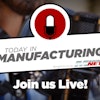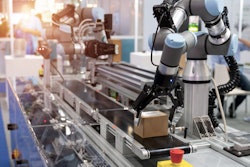WASHINGTON (AP) -- A top Ford Motor Co. executive urged the U.S. government to make a greater commitment to the development of plug-in hybrids on Wednesday, warning that the country was falling behind in developing the technology critical to the advanced vehicles.
Mark Fields, Ford's President of the Americas, said at a conference on plug-in hybrids that bold incentives are needed to speed up the development of advanced batteries that are key to the vehicles.
''The governments of Japan, China, Korea and India are all significantly funding the research development and deployment of plug-in hybrid vehicle technologies. This is a race we absolutely must win,'' Fields said.
''It seems clear that a business case will not evolve, in the near term, without support from Washington,'' he said at the conference, sponsored by the Brookings Institution and Google.org, Google Inc.'s philanthropic arm.
Fields said most of the battery supply is being developed in Asia, underscoring the need for a government-industry partnership to help develop the next generation batteries and help automakers upgrade their factories to build the cutting-edge vehicles.
''For those looking to plug-ins to answer our energy security concerns, we must ensure that we have a domestic battery supply. Moving from imported oil to imported batteries clearly would not address this growing concern,'' he said.
The conference, which featured displays of plug-in vehicles, drew several car manufacturers, technology firms and alternative energy advocates who have been urging a larger commitment from government given record-setting fuel prices and the nation's dependence upon foreign oil.
Democrats in Congress have sought a $3,000 tax break for consumers to buy a plug-in hybrid, but many speakers said a broader number of incentives was necessary.
''We don't have time to wait. We can't have this happen slowly,'' said Felix Kramer, founder of CalCars, a California company that developed plug-in hybrids.
Several car makers are testing plug-in hybrids that could allow owners to plug the vehicle's battery into a standard wall outlet to recharge it. General Motors Corp. is developing an extended-range plug-in electric vehicle called the Chevrolet Volt which it hopes to launch in 2010.
Toyota Motor Corp., meanwhile, announced Wednesday that it would introduce a plug-in hybrid with next-generation lithium-ion batteries by 2010 that will target leasing customers.
Ford has a demonstration fleet of 20 plug-ins through a partnership with Southern California Edison. The companies are studying ways to accelerate mass production of the hybrids.
Fields said the company's plug-in, which has a 10 kilowatt advanced lithium ion battery, could average 120 miles to the gallon while the vehicle runs on mostly electric power for the first 30 miles (48 kilometers) the vehicle is driven after a complete charge.
But he said they are trying to improve the battery's durability, ensure its quality and make it more affordable. Ford has not given a firm date on when it expects to mass market the vehicles, but said last year that it could take 5 to 10 years.






















